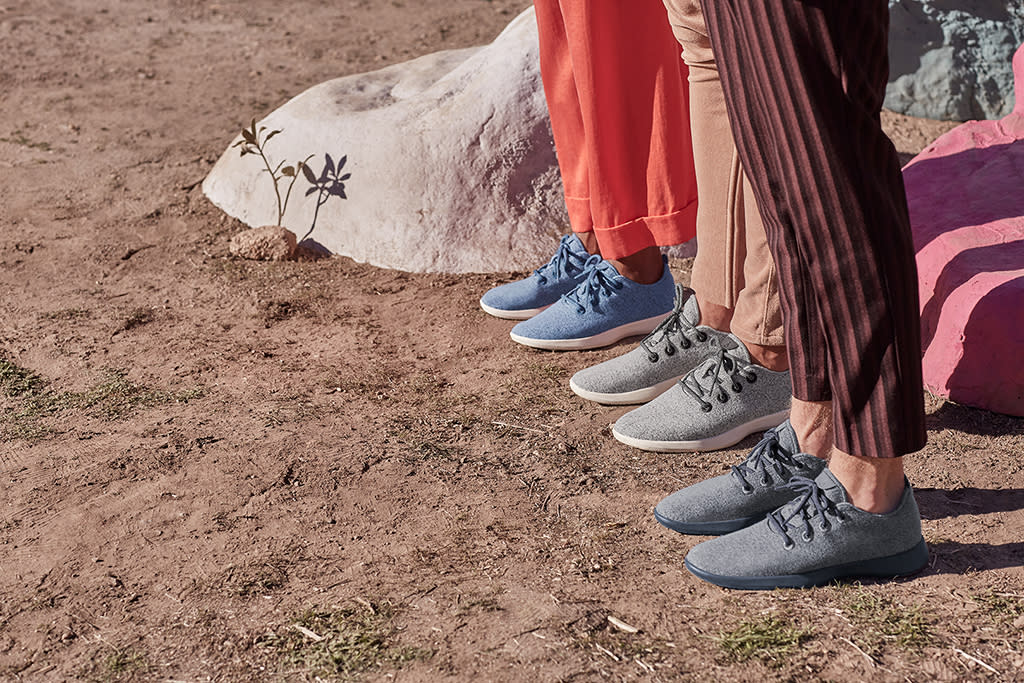Why You Shouldn’t Make Your Shoe Brand Sustainable

Click here to read the full article.
It’s all the rage.
Ask any fashion industry leader what key issues shoe players are thinking about right now and the odds are sustainability will sit high on the list.
More from Footwear News
This Business Is Selling All Kinds of Sustainable Products In One Digital Destination
These Businesses Are Saving the Planet One Shoebox at a Time
From buzzy start-ups like Allbirds that have made sustainability their core message to big names like Adidas that have launched full-on divisions dedicated to the cause, the proof of sustainability’s sticking power is clear. Still, several shoe industry leaders that have convened in New York today for the Footwear Distributors & Retailers of America Sourcing & Sustainability Summit are nearly unanimous in their belief that going sustainable for the sake of the trend is far from a sound business move.
“Nobody wants sustainability to be marketed more than the supply chain. It makes a lot of sense because it’s a lot of work on suppliers, factory partners and vendors, and product development teams. Nobody wants this to be on the billboard more than those people,” explained Anders Bergstrom, GM at Deckers Brands-owned shoe label Teva during a panel discussion. “[However] don’t [create sustainable product] because it’s going to become an ad. Don’t do it because it’s going to drive demand. Do it because it is the right thing to do — and hold on to that truth as far as you can across the board and across the enterprise.”
Still, from a top-line stand point, companies have good reason to go sustainable as well as promote their efforts: Gen Z and millennial customers, in particular, are increasingly environmental conscious when making purchasing decisions. Overall, 40% of consumers say that eco-friendly/sustainable materials are important when considering footwear purchases, noted Beth Goldstein, executive director and industry analyst for footwear and accessories at The NPD Group, who was also on the panel.
“Importance among younger consumers is growing in particular — we’ve seen this with 18 to 34 year olds,” Goldstein added.
In short, the evidence shows that it benefits brands immensely when they communicate about sustainability, however, authenticity remains key if the message is going to stick.
“We’ve actually thought about this [idea of sustainability] a lot recently and [how we can] be true to our brand and what our values are [as well as] be authentic,” said Tracy Graham, director of product development at Keds, who was joined by the brand’s design director, Suzie Glover, for a conversation moderated by FDRA president and CEO Matt Priest.
Graham and Glover spoke about Keds’ recent collaboration with sustainable apparel brand Ace & Jig for a limited edition launch of eco-friendly shoes. Both execs noted that the partnership yielded key lessons that Keds will apply to a larger — and most importantly “a thoughtful” — sustainability rollout in the future. (Ace & Jig’s wares are crafted by artisan weavers in India.)
“We don’t want to come in and make ‘green’ Champion [Keds sneakers] and call it a day just to check a box,” Graham added. “We are trying to be super thoughtful with how we approach it and take lessons from this and work with our factory partners to [figure out how we can] do [some things] in a different way.” (Keds started in 1916 when it created its first women’s sneaker, aptly named Champion.)
Other speakers at the annual summit included: Nathan Serphos, SVP of accessories and footwear at Michael Kors; and Mike Jeppesen, president of Global Operations at Wolverine World Wide Inc.
Want More?
Why Vietnam Is Only a ‘Short-Term Fix’ for the Trade War
Sign up for FN's Newsletter. For the latest news, follow us on Facebook, Twitter, and Instagram.

